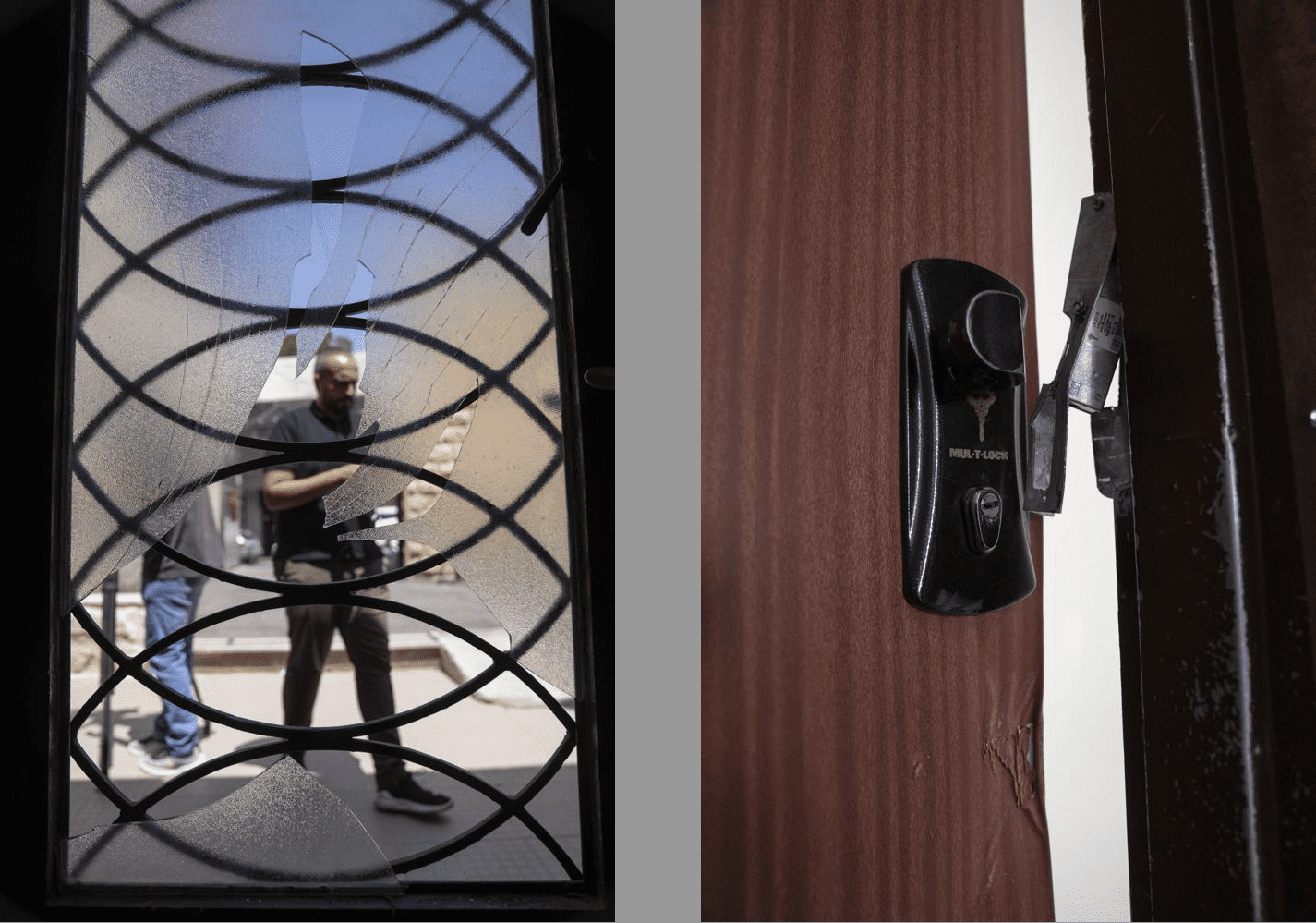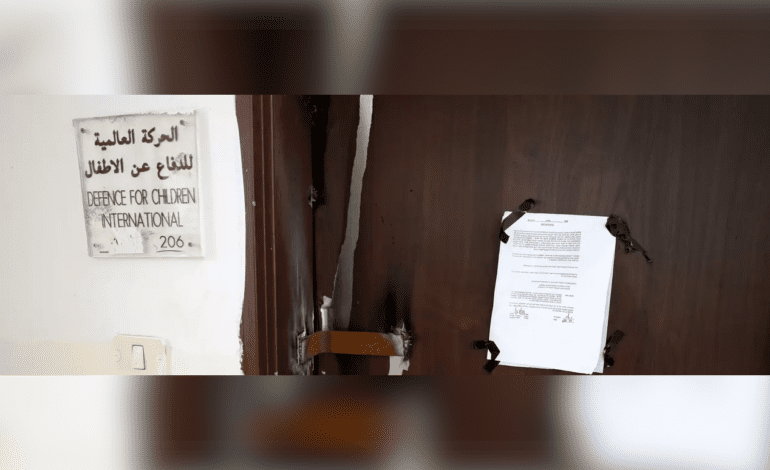Israel raided the offices of several Palestinian advocacy groups it had previously blacklisted as terrorist organizations early Thursday, sealing entrances and declaring them closed.
Western diplomats visited one of the offices hours later in a show of support for the outlawed groups. The U.S. State Department expressed concern about the raids and said it was seeking more information from senior Israeli officials.
The raids marked a major escalation against the civil society organizations, which Israel has outlawed over claims that they have ties to a militant group, a charge they deny. Israel has provided little evidence to back up its accusations. Nine European countries have rejected Israel’s charges against the groups, citing a lack of evidence.
Israel claims the groups are linked to the Popular Front for the Liberation of Palestine, a secular, left-wing movement with a political party as well as an armed wing that has carried out deadly attacks in Israel. Israel outlawed the groups last year.
Shawan Jabarin, director of al-Haq, one of the targeted groups, said he and his staffers are still examining whether any documents were confiscated.
Israeli troops “came, blew up the door, got inside, and messed with the files,” he told The Associated Press. They then sealed the entrance to the office, he said.
Another of the groups, the Union of Agricultural Work Committees, circulated video showing soldiers in full battle gear searching their office and moving equipment.

(Left) Glass of the main entrance of the St. Andrew’s Anglican Episcopal Church was shattered by the Israeli army during its raid of the al-Haq Human rights organization office on Aug. 18. (Right) The damaged entrance of the office of the al-Haq Human rights organization. Photo: Nasser Nasser/AP/File
Israel has provided little evidence to back up its accusations. Nine European countries have rejected Israel’s charges against the groups, citing a lack of evidence.
Rights defenders have described Israel’s moves against the groups as part of a decades-long crackdown on political activism in the occupied territories. Last month, nine EU member states said Israel hasn’t backed up its allegations and that they will continue working with the groups.
A delegation of mostly European diplomats visited al-Haq’s office hours after the raid in a show of support.
“We express our solidarity with our partners, which we have been supporting for many, many years,” said Sven Kühn von Burgsdorff, the EU representative to the Palestinian territories, who led the delegation. He said their work in supporting human rights was “indispensable.”
State Department spokesman Ned Price told reporters in Washington that the U.S. was “concerned” about the raids and closures, adding that civil society is an “integral element to thriving democracies.”
He said Israeli officials have pledged to provide further information, without detailing what has been received so far or what conclusions U.S. officials have drawn from it.
The Israeli military said it closed seven institutions and seized their property in Thursday’s raids. The military did not immediately explain the discrepancy in the numbers between groups designated and groups raided.
On Wednesday, Israeli Defense Minister Benny Gantz’s office reiterated its claim that the groups “operate under the guise of performing humanitarian activities to further the goals of the PFLP terrorist organization, to strengthen the organization and to recruit operatives.”
Most of the targeted organizations document alleged human rights violations by Israel as well as the Palestinian Authority, both of which routinely detain Palestinian activists.
The groups reportedly raided include al-Haq, a veteran, internationally respected Palestinian rights group; Addameer, which advocates for Palestinian prisoners; Defense for Children International-Palestine; the Union of Palestinian Women’s Committees; the Union of Agricultural Work Committees and the Bisan Center for Research and Development.
Jabarin said “neighbors and strangers” who were nearby during Thursday’s raid had opened the office in Ramallah as soon as the Israeli forces left and that al-Haq’s staff were inside and resuming their work.
“We don’t take permission from any Israeli military or political official,” he said. “We are proceeding, encouraged by our belief in accountability and the international law.”

Spilled coffee on a desk at the al-Haq Human rights organization that was raided by the Israel army in the West Bank city of Ramallah, Aug. 18. Photo: Nasser Nasser/AP
We don’t take permission from any Israeli military or political official. We are proceeding, encouraged by our belief in accountability and the international law. — Shawan Jabarin, al-Haq director
Troops raiding al-Haq’s office broke through a door leading to the St. Andrew’s Episcopal Church compound, which rents the office space to the group, according to the church rector, Rev. Fadi Diab. The Episcopal Diocese of Jerusalem condemned what it said was a “flagrant attack” on the compound, saying the al-Haq office had its own separate entrance.
The military did not immediately respond to a request for comment on the church’s statement.
Thursday’s raids come seven months after Israel outlawed Al-Haq, Addameer, Bisan and others.
The Palestinian Authority government in the West Bank described the closure of the organizations as a “dangerous escalation and an attempt to silence the voice of truth and justice.” Hussein al-Sheikh, a senior Palestinian official, said the PA will appeal to the international community to reopen the institutions.
Israel and Western countries consider the PFLP a terrorist organization.
An Israeli government statement last year said some of the outlawed groups are “controlled by senior leaders” of the PFLP and employ its members, including some who have “participated in terror activity.”
It said the groups serve as a “central source” of financing for the PFLP and had received “large sums of money from European countries and international organizations”, without elaborating.
Israel has long accused human rights groups and international bodies of being biased against it and of singling it out while ignoring graver violations by other countries.
— AP report, edited for style






Leave a Reply